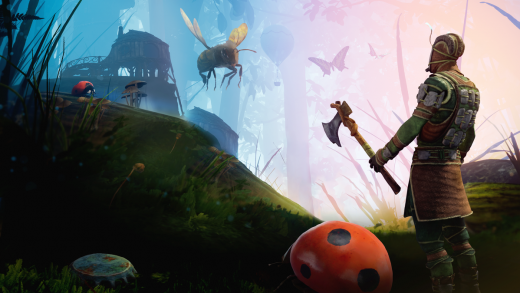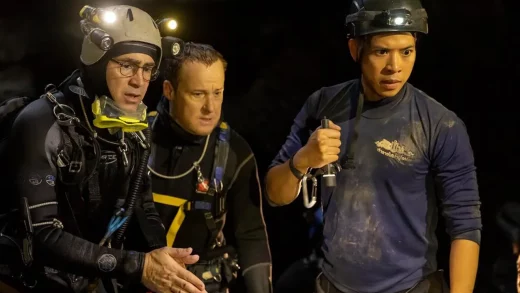:format(webp)/https://www.thestar.com/content/dam/thestar/entertainment/movies/2023/05/01/are-you-there-god-its-me-margaret-was-like-stepping-into-a-time-machine-for-abby-ryder-fortson/abby_ryder_fortson.jpg)
Abby Ryder Fortson, the star of the long-awaited film adaptation of “Are You There God? It’s Me, Margaret,” is a bright spark onscreen, a ferociously articulate 15-year-old in real life — and a huge fan of the rotary telephone.
“There’s a reason,” said Ryder Fortson, who got to do her fair share of landline handling in the titular role of Margaret Simons, a 12-year-old growing up in the 1970s.
“When you’re mad at someone nowadays, and you want to hang up on someone and have them hear how mad you are, pressing that ‘end call’ button doesn’t have the same effect as slamming a phone down.” In fact, she practised this several times. “It was so much fun.”
The Judy Blume novel on which this film, out now, is based was a beloved, foundational text for several generations of preteen girls. (Say it with me now: “I must, I must, I must increase my bust!”) According to Ryder Fortson, who was 11 when she first auditioned for the part, it remains as beloved with her cohort as when it was first published in 1970.
Just not with her, at least initially.
“I think Judy Blume and I just missed each other,” she said, admitting she hadn’t read it herself growing up. “I was more into sci-fi and fantasy when I was younger.” As soon as she read it, however, she felt that same zing of being seen — in all your confused, excited, terrified fullness — that 53 years worth of girls on the cusp of adulthood had before her.
“I immediately thought it was so relatable. How did someone write down a story this honest and true in the ’70s?” said the California-born Ryder Fortson. “There were such universal timeless themes that anyone can relate to, no matter if you’re growing up then or growing up now.”
At the same time, Ryder Fortson conceded that Margaret Simons’ story — essentially a year in her life when she grapples with every hurdle puberty could throw at a kid, from first periods to first crushes to realizing your parents might be humans, too — would play out a bit differently if it were set in 2023 rather than 1970.
“I think the core message would remain the same, but I do think growing up now is just so complicated,” she said. “Things in the ’70s feel like they were so much simpler without technology, social media, and all of these things that are happening that are restricting our ability to talk about puberty and periods and boobs and all that.” (Here, Ryder Fortson was referring to legislation in several states, including Florida and Idaho, that seeks to limit sex education in schools.)
“It’s just really sad that this is happening,” she said. “The more you know the more you’re able to make conscious decisions about your body, and feel like you’re comfortable in your body and know what’s going on with yourself. That’s one of the most important things that someone can ever know.”
What remains evergreen, however, is the human experience.
“Margaret’s journey of finding herself and figuring out who she is, and all those awkward teenage feelings, would remain the same,” said Ryder Fortson. “You can give us iPhones, but we’ve still got the same stuff going on.” Like, she laughed, the “uncomfortability factor” of your parents giving you the Sex Talk.
“That’s the last thing you want to do,” she said. “It’s the absolute worst. You’re traumatized from that experience afterwards.”
On the more delightful end of the spectrum was Ryder Fortson’s correspondence with Kathy Bates, the award-winning actor who plays her grandmother, Sylvia, in the film.
“Before we had even met in person, we were writing letters back and forth as our characters to really build that bond, because Margaret and her grandmother have such an amazing relationship with each other” Ryder Fortson said. “We built this bank of improv stories we could use on set to solidify our rapport.”
For example: in character, Bates wrote to Ryder Fortson about an imaginary memory of going to the zoo, where there was a squirrel “chittering away” on the ground, which reminded them of Grandpa, who’d also loved nuts and seeds.
“Kathy’s mind and the things that we made up together, it was amazing to just witness and be involved in,” Ryder Fortson said. “That really helped me to feel more connected to Margaret and her experiences, and really build a backstory in my head.”
Another of her co-stars is Canadian actor Rachel McAdams, who plays her mother, navigating a rocky transition of her own as she leaves her art career in the city behind for life as a stay-at-home parent in the suburbs.
“The funny thing is that we didn’t get a ton of prep time,” said Ryder Fortson, who added that she met McAdams and Benny Safdie, who plays her father, the day before filming started.
“We all went into the set of the Simons’ New York apartment; we had a four-hour meeting where we all got to know each other, and next day we were shooting,” she said. “That’s what you have to do as an actor: go up to a stranger and say, ‘Hi, you’re my mom now. I love you so much!’ You get used to it after a while.”
(Ryder Fortson would know: she’s been acting since she was five, has over 20 film credits so far and most recently co-starred with Paul Rudd in two “Ant-Man” movies.)
One of the chief joys of this film is the nostalgia of its ’70s settings, brought to life by the brilliant work of its set and production designers, including Steve Saklad, Angela Stauffer, Selina van den Brink and costume designer Ann Roth, who worked down to the “minutest detail of how Margaret’s socks might roll down,” Ryder Fortson recalled.
“It’s like stepping into a time machine,” she said, adding she’s obsessed with the decade in general. “I have so many vintage clothes, I collect vinyls and I have a vintage typewriter.”
When Ryder Fortson was gifted a few items from set, she chose a small glass vase, a small red suitcase and the tiny animal figurines that were in Margaret’s bedroom, which she can still place exactly in her memory. “When you’re spending four months on a set, you get to know it so well. It feels like your own house.”
As for the pressure of inhabiting a character that means so much to so many people? Ryder Fortson said she tried not to think about it too much.
“I’m just so, so honoured that I was chosen to portray Margaret, who is such an iconic character,” she said, pointing to the fact that Judy Blume, who was a producer on the film, told her that Margaret was a version of herself.
“On set, we were all just anxiously looking back and thinking, ‘Oh my gosh, is she liking this?’ It was her baby, she held onto it for 50 years and it’s so incredible that we were the ones chosen to bring Margaret to the big screen.”
JOIN THE CONVERSATION
does not endorse these opinions.


